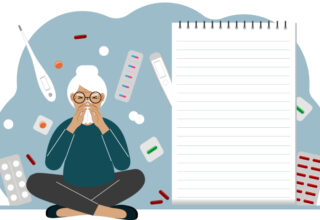If you’re working in Ireland and feeling unwell, you might be wondering whether you can take a sick leave without getting a doctor’s note, especially if it’s for a short-term illness.
This is where an uncertified (self-certified) sick leave comes in. But how many days can you take? Will you be paid? And do employers allow it?
Let’s break it all down in a simple way, including your rights, employer rules, and what to do if an issue arises.
What is Uncertified Sick Leave?
Uncertified sick leave refers to short-term illness-related absence from work without providing a medical certificate/sick cert from a doctor.
You’re still officially considered off sick but you’re self-declaring the reason for your absence.
In simple terms, “uncertified sick leave” means short absences due to illness for which you don’t have to go to a doctor for a certificate. However, you must still follow your employer’s notification / absence procedures.
Uncertified Sick Leave vs Certified Sick Leave
| Uncertified Sick Leave | Certified Sick Leave | |
| Medical Certificate required? | No | Yes |
| Length of absence | Short-term (usually 1–2 days) | More than 2 consecutive days or as per policy |
| Legal entitlement | Not mandatory in law | Covered under Sick Leave Act 2022 |
| Pay entitlement | Depends on employer’s policy | Statutory Sick Pay (if eligible) applies |
Now that we understand the difference, let’s look at what the law says.
What Does the Law Say About Uncertified Sick Leave?
There’s no legal requirement in Ireland forcing employers to provide uncertified/ self-certified paid sick leave, meaning policies vary by organisation.
However, many employers (especially in the public sector) do offer it, often up to 7 days within 24 months, up to 2 consecutive days.
Ireland’s Sick Leave Act 2022 only guarantees statutory sick pay for certified absences that meet the eligibility criteria (medical certification and minimum service requirements i.e. you’ve worked for your employer for 13 continuous weeks before you’re sick).
While certified leave has stronger legal protection, there are still situations where employers may challenge medical certification. For more detail, check Can an Employer Override a Doctor’s Sick Cert?
Common Employer Rules & Limits on Uncertified Sick Leave
While every workplace can have their own rules, common policies include:
- Up to 2 consecutive days allowed without a certificate
- A maximum of around 7 days in a rolling 24-month period (public sector standard)
- A requirement to provide doctor’s note from day 3 onwards
For example, the Health Service Executive (HSE) says, “You may be granted up to a maximum of 7 days self-certified paid sick leave (pro rata for part time employees) in a rolling 24 month period. This means you do not have to submit a medical certificate if your sickness absence is not more than 2 consecutive days (unless you are specifically requested to do so).”
It’s always best to check your employee handbook, HR portal, union agreement (if applicable), or employment contract to confirm what applies to you.
Do You Still Need to Notify Your Employer?
Yes, even if no medical certificate or doctor’s note is required.
Most employers require you to:
- Notify your manager or HR as early as possible
- Provide basic reason (not necessarily full details of your illness)
- Give an estimated return date
- Complete a self-certification form on return, if requested
If you fail to follow the proper procedure, your absence could be marked unauthorised, even if your illness was genuine. So, always check in with your employer about their specific procedure.
How Employers Monitor Uncertified Sick Leaves
Employers may monitor uncertified absences to identify patterns, such as:
- Absences regularly falling on Mondays or Fridays
- Taking uncertified sick leave near annual leaves or public holidays
- Repeated unexplained one-day illnesses
If your employer detects a pattern, they may:
- Request medical certification for future absences
- Refer the employee to occupational health
- Begin attendance or HR performance review process
What Are You Entitled To?
Your rights for uncertified sick leave depend on:
- Your employment contract
- Your employer’s sick leave policy
- Your record of attendance/ conduct
Certified sick leave may be paid under Statutory Sick Pay (SSP) rules, if eligible.
Currently, employees are entitled to 5 days of paid sick leave per year (subject to medical certification and minimum service requirements i.e. you’ve worked for your employer for 13 continuous weeks before you’re sick).
It’s paid by your employer at 70% of your regular daily earnings, capped at €110 per day.
This statutory entitlement is just a minimum. Many employers offer more generous sick pay schemes through their contracts.
If you’re sick and need to take certified sick leave, you can get an online sick note/sick cert after consultation and approval from an IMC-registered doctor. Valid in Ireland and other EU countries.
Practical Tips for Employees
- Check your contract before assuming entitlements
- Communicate early and openly with your manager
- Keep your own record of absence dates
- If your illness is chronic, speak to your HR for reasonable accommodations
- If unsure, ask HR to clarify policy wording
- Consider seeking advice if your employer changes your marked absence type unfairly or you’re penalised for legitimate illness. You can seek guidance from sources like the Workplace Relations Commission (WRC).
Understanding the rules and your contract is the best way to avoid confusion and ensure your sick leave is managed fairly.
Legal Disclaimer: This article is for general information only and is not legal advice. Always refer to your employment contract and seek professional guidance when needed.








